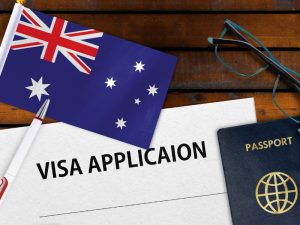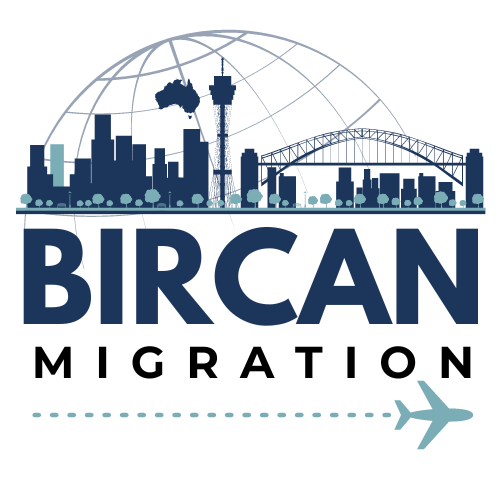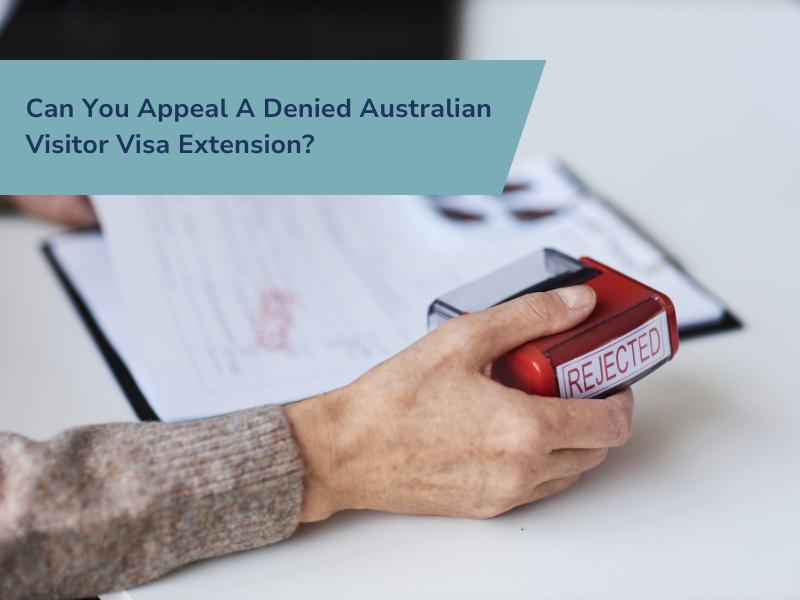If you’re in Australia on a visitor visa and find yourself in a situation where your application for an extension is denied, it’s important to know that you may have options to appeal. Understanding your rights, the reasons for the denial, and the process involved in appealing can help you make informed decisions moving forward. This guide will walk you through everything you need to know about appealing a denied Australian visitor visa extension.
What are the common reasons for the denial of a visitor visa extension?
A visitor visa extension allows you to stay in Australia longer. However, your application may be refused for various reasons. Here are some of the most common causes:
- Failure to meet visa conditions: If you’ve violated the conditions of your current visa, such as overstaying or working without permission, your extension request may be denied.
- Insufficient financial support: If the Department of Home Affairs is not satisfied that you have enough funds to support yourself during your extended stay, the visa extension can be refused.
- Lack of genuine intent: If the authorities suspect that you intend to stay in Australia permanently or have overstayed in the past, they may not grant your extension.
- Incomplete or incorrect documentation: Submitting an incomplete application or providing inaccurate information can result in visa denial.
- Health and character issues: Your application for a visa extension may be denied if you do not meet the health and character requirements.
- Failure to provide sufficient reasons for extension: If you cannot demonstrate a compelling reason for your request, the visa officer may not approve it. Moreover, it’s essential to understand the grounds for visa refusal or cancellation under section 501, as they can impact your ability to remain in Australia.
How can you appeal a denied Australian visitor visa extension?
If your visitor visa extension has been denied, you may be able to challenge the decision through the Administrative Appeals Tribunal (AAT). Here’s how the appeal process works:
- Review the decision: Carefully read the refusal notice to understand why your application was rejected. The notice will detail the reasons for the refusal and any evidence you must address in your appeal.
- File an appeal with the AAT: You must lodge your appeal within 21 days from the decision date. The AAT will review your case and determine whether the decision was correct. You can submit additional documents and evidence to support your appeal.
- Attend a hearing: Depending on the circumstances, you may be required to attend a hearing. The AAT will review all the information provided and may ask questions to clarify your situation.
- Decision outcome: Once the AAT has reviewed your appeal, they will issue a decision. If the appeal is successful, the refusal will be overturned, and your visa extension will be granted. You may have to leave Australia or explore other visa options if unsuccessful.
What are your chances of success when appealing a denied visitor visa extension?
The chances of success when appealing a denied visitor visa extension depend on various factors, including the reason for the refusal and the strength of your supporting evidence. Here are some key points to consider:
- Strong documentation: If you can provide strong evidence to address the reasons for the denial, your chances of success increase. For example, proof of sufficient financial support or a more compelling reason for your stay can help strengthen your case.
- Previous visa compliance: A history of complying with visa conditions can help your appeal.
- Timely and complete appeal: Ensuring your appeal is lodged on time and includes all required documentation can improve your chances of a positive outcome.

While each case’s outcome is unique, proper legal guidance and a well-prepared appeal can significantly increase one’s chances of success.
When should you seek professional help for your appeal?
You can appeal a denied visa extension independently, but professional help from a migration consultant or lawyer often makes a difference. Here’s when you should consider consulting an expert:
- Complex refusals: If your refusal is based on complex issues such as a history of overstaying or health concerns, professional guidance can help you navigate the appeal process more effectively.
- Lack of experience with the appeal process: If you’re unfamiliar with the AAT process or visa law, working with a migration consultant can ensure your appeal is prepared correctly and submitted on time.
- Timely guidance: Professional migration consultants can ensure that all documentation is correct and filed within the required timeframes, reducing the chances of further delays.
- Support throughout the appeal: A migration consultant can offer ongoing support, answering any questions and assisting with the preparation for hearings or additional requests.
Given the complexity of visa appeals, consulting with a professional can save you time, effort, and stress. Professional help can also improve your chances of success with your Australian visitor visa application.
How long does the appeal process take, and what are the costs?
The time and costs of an appeal process can vary based on your case and the AAT’s workload. Here’s an overview:
- Timeframe:
- The processing time for an appeal can range from a few months to over a year, depending on the complexity of your case and the volume of cases at the AAT.
- If your case requires a hearing, this can add additional time to the overall process.
- Costs:
- A fee is charged to lodge an appeal with the AAT, which can vary depending on the type of visa and the complexity of the case.
- If you choose to hire a migration consultant or lawyer, their fees will depend on the services provided and the complexity of your case.

Understanding the visa appeal process in Australia can help you manage expectations regarding timelines and costs. The appeal process may be long and costly, but it’s worthwhile if it leads to a successful outcome.
What happens after your appeal is decided?
You will be notified in writing once the AAT has decided on your appeal. Here’s what can happen:
- If your appeal is successful, the AAT will overturn the original refusal, and your visa extension will be granted. You will receive your new visa and be allowed to stay in Australia for an extended period.
- If your appeal is unsuccessful, you may be required to leave Australia. You may also need to explore other visa options or reapply for a different type of visa.
Regardless of the outcome, reviewing your options and making informed decisions about your next steps is essential.
Ready to get the help you need for your visa appeal?
At Bircan Migration, we understand how stressful and complicated visa extensions and appeals can be. With over 20 years of experience and a high success rate, Kenan Bircan and his team provide expert guidance throughout the visa appeal process. We offer free consultations to help assess your case and provide personalised support to help you achieve the best possible outcome.
One of our clients shared their experience, praising our fast and efficient service. They received their visitor visa within just 7 days and reunited with their daughter in Australia. This is the level of dedication and expertise that we bring to each case.
If you need assistance with your Australian visitor visa extension or have been denied a visa extension, reach out to Bircan Migration for expert visa advice.
Frequently Asked Questions
- How soon can I appeal a denied Australian visitor visa extension?
You can appeal within 21 days of the refusal date.
- Do I need a lawyer to appeal a denied visa extension?
While it is not mandatory, seeking professional help can increase your chances of success.
- What documents do I need to submit for an appeal?
You must submit a copy of the refusal notice and any supporting documents that address the reasons for the denial. You must also ensure your documents meet the Australian visitor visa requirements.
- Can I stay in Australia while waiting for the decision on the appeal?
It depends on your visa status. If your current visa has expired, you may need to apply for a bridging visa.
- Can the AAT overturn the decision to deny a visitor visa extension?
Yes, the AAT can overturn the decision if it finds that the original refusal was incorrect or unjust.
- Is there a chance for a visitor visa extension if I have overstayed my visa?
Overstaying your visa can make the appeal process more challenging. Still, if you can demonstrate a valid reason for the overstay, your chances of success may improve.
- Can I reapply for a visitor visa extension after my appeal is denied?
Yes, depending on your circumstances, you can reapply for a different type of visa.
- What happens if I don’t appeal the denial?
- What if my appeal is successful, but I’m unable to meet the visa conditions?
If you cannot meet the conditions of the new visa, you may face future issues with Australian immigration.
- Can I appeal a visa extension denial if I’m currently outside Australia?
Yes, you can appeal a visa refusal even if you are outside Australia. However, your situation may differ, and you might need to provide additional documentation.


